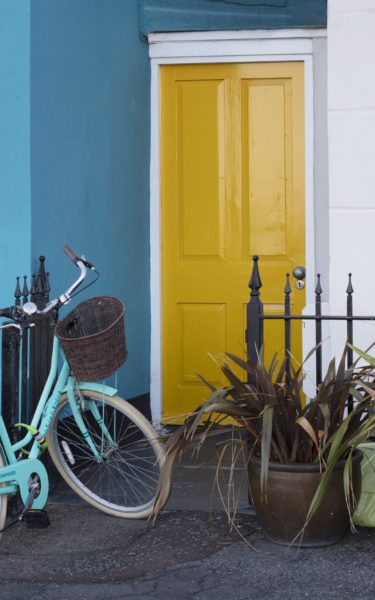Expat mortgages.

Here to help
Expat mortgages for UK nationals.
British expats may choose to remain on the property ladder in the UK for a variety of reasons, for some they simply see rental earnings as a good source of income or they may be maintaining a residential property for family to reside in or for when they finish working abroad and return home to the UK.
Whatever stage you’re at, and whatever type of mortgage you need, we’ll do our best to help and we’re only one call away.
Types of mortgages for expats.
More information
Find an expat mortgage.
Below you can browse our range of currently available expat mortgage products, including expat residential, expat buy to let and expat holiday let.
Once you’ve found a mortgage product you can calculate expat mortgage costs with our indicative mortgage repayment calculator. For more about mortgages in general head over to our mortgage information page.
Mortgage Name
Rate
Initial Rate
APRC
Rate Term
Max loan amount
Max LTV
Full Details
Expat Residential 2 Year Fixed Rate (Capital & Interest Repayment) – for purchase or remortgage up to 80% LTV
Fixed
Product ID: Purchase: 15475 Remortgage: 72568
Fixed
Initial Rate
5.79%
APRC
7.9%
Rate Term
2 year
Max loan amount
£2m
Max LTV
80%
Expat Residential 5 Year Fixed Rate (Interest Only) – for purchase or remortgage up to 80% LTV
Fixed
Product ID: Purchase: 15479 Remortgage: 72572
Fixed
Initial Rate
5.89%
APRC
8.0%
Rate Term
5 year
Max loan amount
£750,000
Max LTV
80%
Expat Residential 5 Year Fixed Rate (Capital & Interest Repayment) – for purchase or remortgage up to 80% LTV
Fixed
Product ID: Purchase: 15478 Remortgage: 72571
Fixed
Initial Rate
5.59%
APRC
7.6%
Rate Term
5 year
Max loan amount
£2m
Max LTV
80%
Expat Residential 2 Year Discount Rate (Capital & Interest Repayment) – for purchase or remortgage up to 80% LTV
Variable
Product ID: Purchase: 11266 Remortgage: 67313
Variable
Initial Rate
5.89% (SVR minus 2.80%)
APRC
7.2%
Rate Term
2 year
Max loan amount
£2m
Max LTV
80%
Expat Residential 2 Year Fixed Rate (Interest Only) – for purchase or remortgage up to 80% LTV
Fixed
Product ID: Purchase: 15476 Remortgage: 72569
Fixed
Initial Rate
6.09%
APRC
8.2%
Rate Term
2 year
Max loan amount
£750,000
Max LTV
80%
Expat Residential 2 Year Discount Rate (Interest Only) – for purchase or remortgage up to 80% LTV
Variable
Product ID: Purchase: 11267 Remortgage: 67314
Variable
Initial Rate
6.09% (SVR minus 2.60%)
APRC
7.7%
Rate Term
2 year
Max loan amount
£750,000
Max LTV
80%
Expat Buy to Let 2 Year Fixed Rate – for purchase or remortgage up to 80% LTV (3% Fee)
Fixed
Product ID: Purchase: 29421, Remortgage: 29422
Fixed
Initial Rate
5.29%
APRC
8.5%
Rate Term
2 year
Max loan amount
£1m
Max LTV
80%
Expat Buy to Let 2 Year Fixed Rate – for purchase or remortgage up to 80% LTV
Fixed
Product ID: Purchase: 29419, Remortgage: 29420
Fixed
Initial Rate
5.99%
APRC
8.3%
Rate Term
2 year
Max loan amount
£1m
Max LTV
80%
Expat Buy To Let 5 Year Fixed Rate – for purchase or remortgage up to 80% LTV
Fixed
Product ID: Purchase: 29425, Remortgage: 29426
Fixed
Initial Rate
5.80%
APRC
7.6%
Rate Term
5 year
Max loan amount
£1m
Max LTV
80%
Expat Buy To Let 2 Year Discount Rate – for purchase or remortgage up to 80% LTV
Variable
Product ID: Purchase: 24266, Remortgage: 24267
Variable
Initial Rate
5.95% (SVR minus 2.74%)
APRC
8.4%
Rate Term
2 year
Max loan amount
£1m
Max LTV
80%
Expat Holiday Let 2 Year Fixed Rate – for purchase or remortgage up to 80% LTV
Fixed
Product ID: Purchase: 29417, Remortgage: 29418
Fixed
Initial Rate
6.09%
APRC
8.6%
Rate Term
2 year
Max loan amount
£750,000
Max LTV
80%
Expat Holiday Let 5 Year Fixed Rate – for purchase or remortgage up to 80% LTV
Fixed
Product ID: Purchase: 29399, Remortgage: 29400
Fixed
Initial Rate
6.09%
APRC
8.0%
Rate Term
5 year
Max loan amount
£750,000
Max LTV
80%
Expat Holiday Let 2 Year Discount Rate – for purchase or remortgage up to 80% LTV
Variable
Product ID: Purchase: 24268, Remortgage: 24269
Variable
Initial Rate
6.19% (SVR minus 2.50%)
APRC
8.4%
Rate Term
2 year
Max loan amount
£750,000
Max LTV
80%
Additional Borrowing (Residential) 2 Year Discount Rate – up to 90% LTV
Variable
Product ID: 78027
Variable
Initial Rate
5.59% (SVR minus 3.10%)
APRC
7.6%
Rate Term
2 year
Max loan amount
£500,000
Max LTV
90%
Additional Borrowing (Residential) 2 Year Fixed Rate – up to 90% LTV
Fixed
Product ID: 79024
Fixed
Initial Rate
5.69%
APRC
7.7%
Rate Term
2 year
Max loan amount
£500,000
Max LTV
90%
Additional Borrowing (Residential) Standard Variable Rate – up to 90% LTV
Variable
Product ID: 83009
Variable
Initial Rate
8.69% (SVR)
APRC
9.4%
Rate Term
3 year
Max loan amount
£500,000
Max LTV
90%
FAQs
Expat mortgages – your questions answered.
An expat, or to give it its full term, expatriate, is someone who lives outside their native country. For the purposes of our expat mortgage products, we define an expat as a UK national living abroad. On a joint application, if one applicant meets this definition, then the application will proceed as an expat case.
Yes, as a UK national living abroad, you should be able to get a mortgage for a property, but it can be a little more complicated than if you were living in the UK. Many high street banks don’t offer expat mortgages, so you may need to seek a specialist lender.
There are three main types of expat mortgage: residential expat mortgages, buy to let expat mortgages, and holiday let expat mortgages. Some specialist lenders offer all three types, others just offer one or two.
An expat mortgage is a mortgage designed specifically for people who live outside of their native country but who wish to buy property there.
Those seeking UK expat mortgages may be looking to maintain a residential property for their family to stay in whilst they work abroad, or they might be planning to buy a property to rent out for the extra income, for example. There are several reasons why British expats may choose to remain on the property ladder in the UK. If you’re currently living abroad and looking to buy or remortgage a property in the UK, you’ll need an expat mortgage as you won’t meet the criteria for a standard mortgage.
Expat mortgages can be a little more complicated than standard UK mortgages, so it makes sense to enlist the help of a broker who has experience in this area. They will understand which lenders offer expat mortgages, as well as help you with additional requirements such as: proof of overseas employment status, exchange rate complexities, and affordability issues.
It’s not uncommon for expat mortgage applications to be in joint names, and often the second applicant is a non-UK national. The second person’s income cannot usually be taken into consideration if they are not a UK national. That said, increasing numbers of lenders are comfortable with naming a second person on the mortgage as long as the first applicant is a UK passport holder.
Some lenders will accept a currency for income purposes but may not accept a foreign-based deposit. That’s because some currencies are viewed more, or less favourably, than others.
If your deposit is in a foreign currency, you’ll usually be able to find a lender that accepts it. However, you should always check with your broker or lender first.
Any deposits will ideally be in the currency of the country you are currently residing. Having a deposit in a third currency/country is another complexity which can limit your choice of mortgage provider.
Wherever your deposit is based, lenders will expect clear evidence of where it came from.
The currency you’re paid in is important to a lender, particularly on a residential case. This is because a lender needs to notify a customer if there’s a large fluctuation in the exchange rate. Monitoring this isn’t easy, which is why some lenders only accept certain currencies on a residential application. Lenders may reduce a customer’s income in affordability calculations. This can cover the risk of any fluctuation in the exchange rate. This is known as ‘haircutting’.
Yes. Most providers will need you to have a UK bank account and other forms of ID such as a UK passport, UK driving licence, evidence of your current address and details of your last address(es) in the UK.
When it comes to expat mortgages, some lenders can be averse to ‘lock and leave’ properties and prefer someone to be living in the property. This is because the lender needs to ensure the future saleability of the property and unless it is lived in (and maintained), it could deteriorate. You might also need to consider who is staying in the property, as some lenders limit this to very close family, while others take a wider view. Always check with your lender or broker in advance.
Yes, it does. Most lenders who offer expat mortgages accept applications from the residents of a wide range of countries. However, there are some countries which may be an exception to this. This could be because there are sanctions in place for that country; or there may be concerns regarding money laundering regulations; or political instability. It is important to check with the lender early in the process.
Building relationships
/ 2

From Our Blog
Mortgage news.
Our blog contains the latest goings-on and updates across the Society, so here’s where you can check out our latest mortgage news.
Or, if you want to see more than just mortgages, take a look at all of our blogs.

Do Self Build Homeowners pay Community Infrastructure Levy?

We’ve Been Shortlisted – What Mortgage Awards 2024

The Self Build Land Grab

Self Build Research: a Third of People are Considering Self Build.

A Self Build Project in Ely

How to Know if a Plot of Land is Suitable for a Self Build Project
Enquiries
We have conversations, not algorithms.
Our decisions are made by experts, not computers. We need to calculate the financials, but we understand there’s more behind a mortgage than the numbers on a page. We can’t promise to lend to everyone and anyone, but we’ll consider most applications on an individual basis.
Ready to go? We’d love to hear from you. Get in touch with our friendly and knowledgeable team.
Prefer to talk?
Call 0330 123 0723
Contact us










